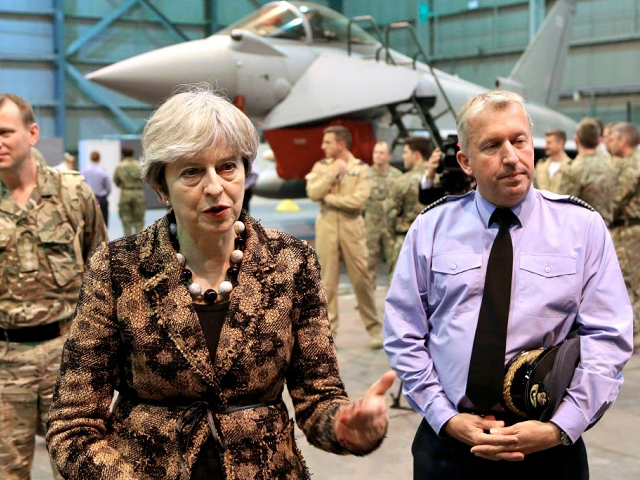The United Kingdom spent less than the two per cent of GDP on defence required by NATO for membership, with the failure coming as other nations across the alliance are working to improve their spending following pressure from President Donald Trump.
The figures come as the International Institute for Strategic Studies (IISS) in London published its annual report on military capabilities, which found that for the second year in a row Britain’s defence spending stood at 1.98 per cent in 2017. The British government disputes the figure.
The United States has long picked up the bill for mutual defence, considerably outspending the rest of NATO while the vast majority of other members have consistently failed to meet the two per cent minimum for decades.
President Trump has berated NATO members for failing to pay their share, and the United States is expected to continue to pressure member states to improve their level of defence at a summit in Brussels this week, reports the Financial Times.
Speaking in May, President Trump said the present arrangement of the majority of the 29 NATO states not paying their way could not continue and that many countries “owe massive amounts of money” for the free defence they had received.
He said: “NATO members must finally contribute their fair share and meet their financial obligations… This is not fair to the people and taxpayers of the United States.
“Two percent is the bare minimum for confronting today’s very real and very vicious threats.”
Member states are already reacting to the President’s words, with half expected to hit the two per cent level by 2024.
Britain’s government disputes the IISS’s figures, presenting their own which show the United Kingdom spent 2.14 per cent in 2017, and criticising the think tank’s figure for having been calculated in U.S. Dollars, not Sterling.
Yet the government counter-claim comes after the Ministry of Defence was accused of “cooking the books” in 2017 to make defence spending seem larger than it actually is, including non-frontline spending like war pensions in the total to push the figure over the two per cent line.
While including pensions is acceptable under NATO defence spending rules, doing so when the figure is so close to the minimum is nothing more than a con, said British member of Parliament and former army officer Johhny Mercer who said last year: “We have cooked the books… The only people we are kidding are ourselves. I do not think people within the military think [we are meeting it].”
According to official NATO figures from 2017, just six of NATO’s then 28 members paid their fair share, those being the United States, Greece, Estonia, the United Kingdom, Romania, and Poland.

COMMENTS
Please let us know if you're having issues with commenting.